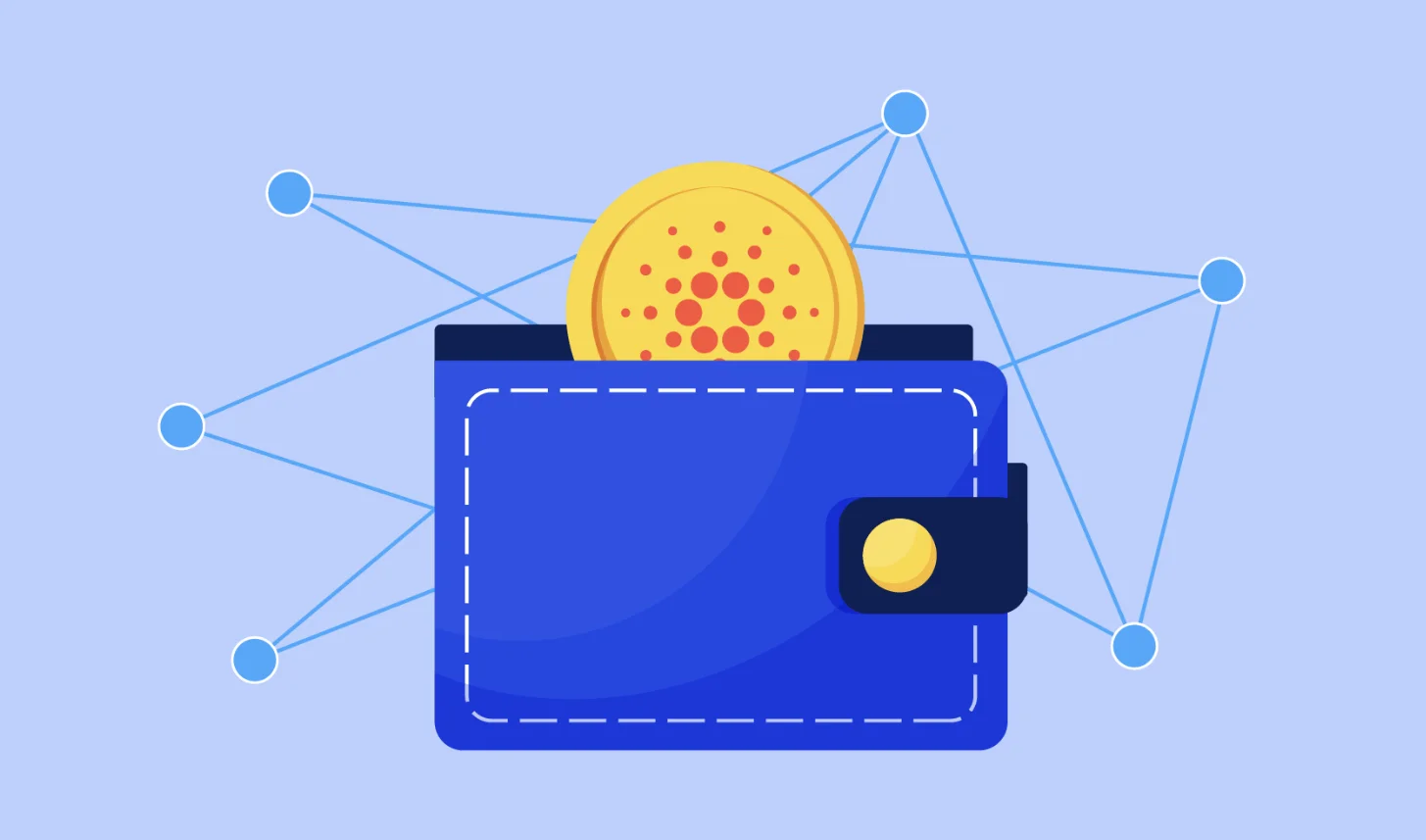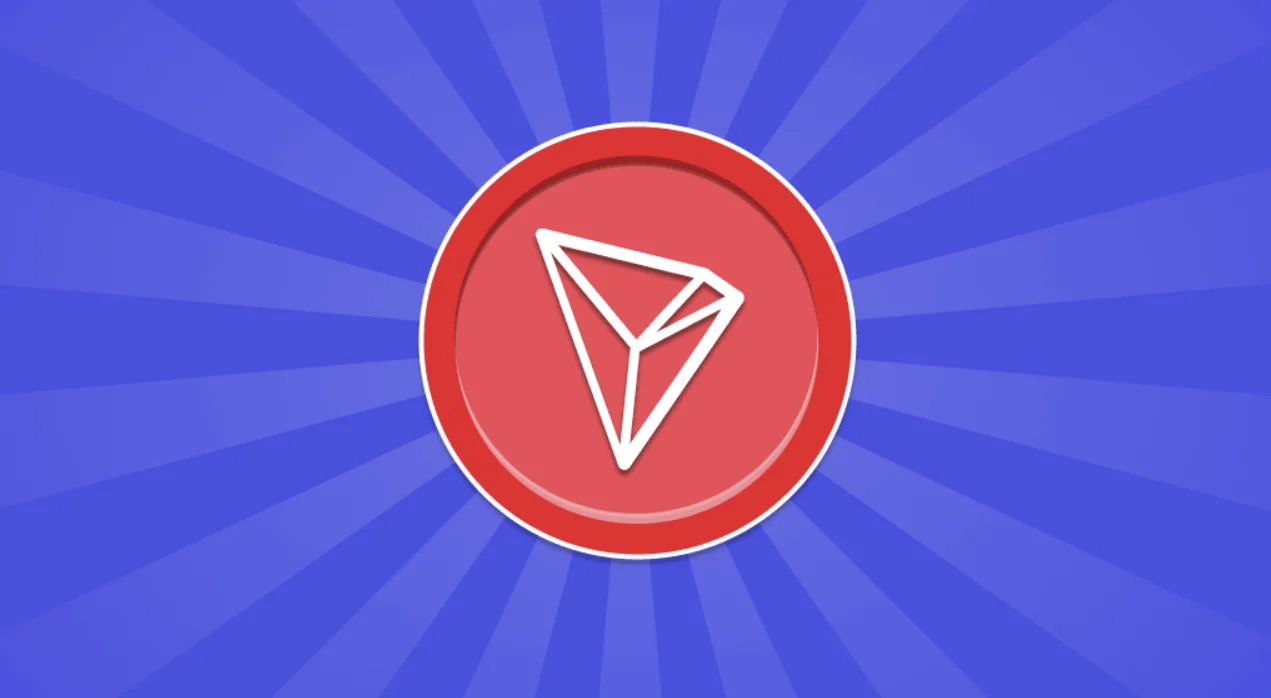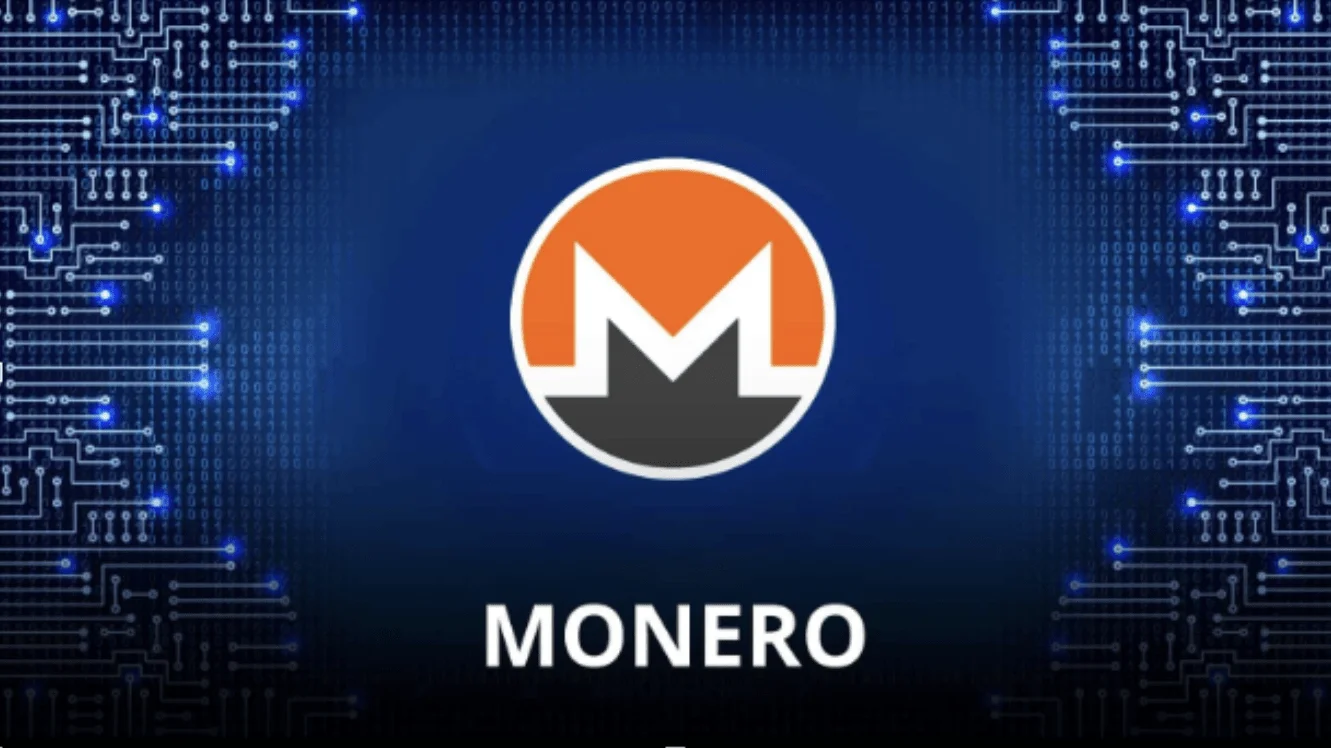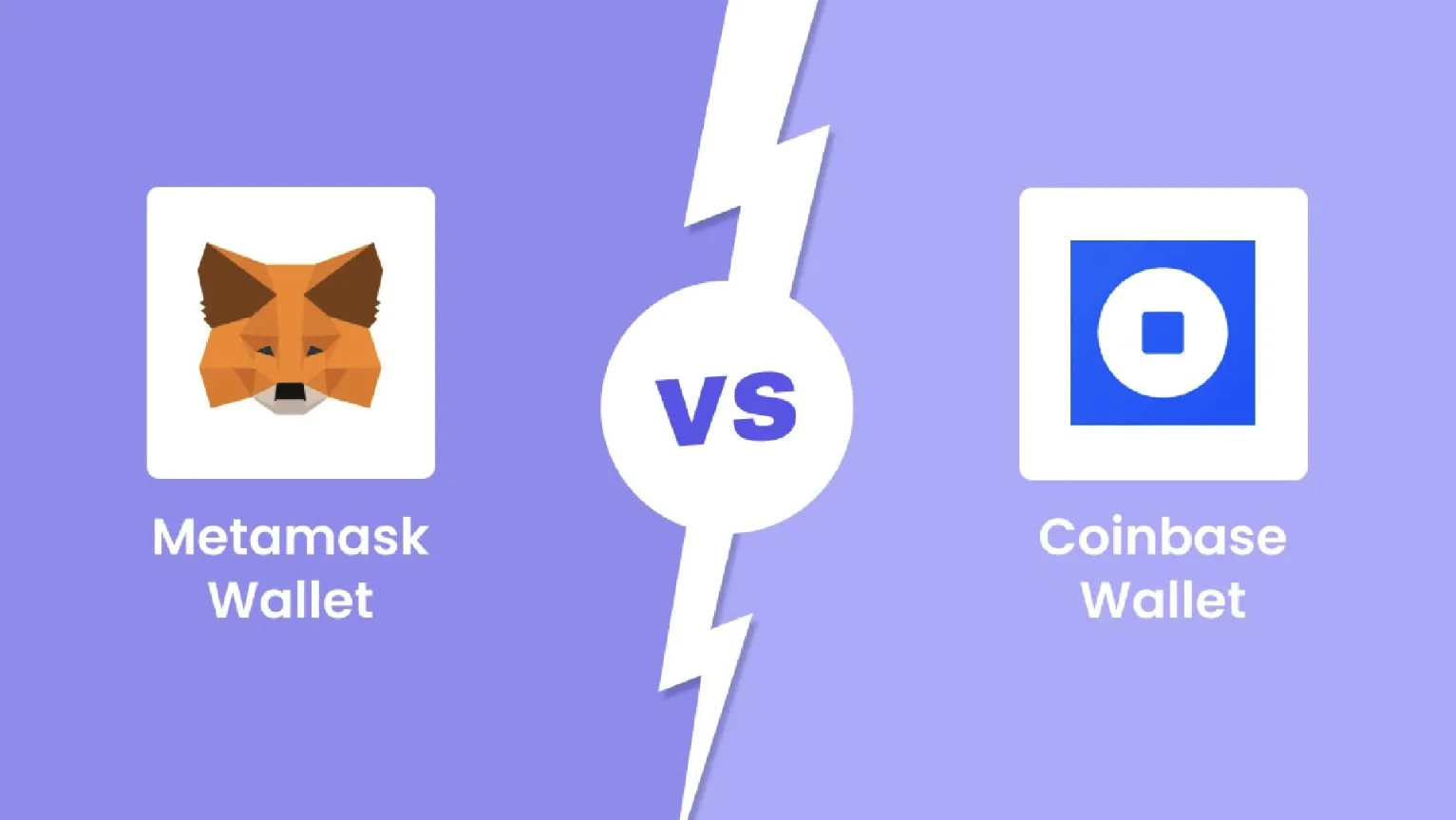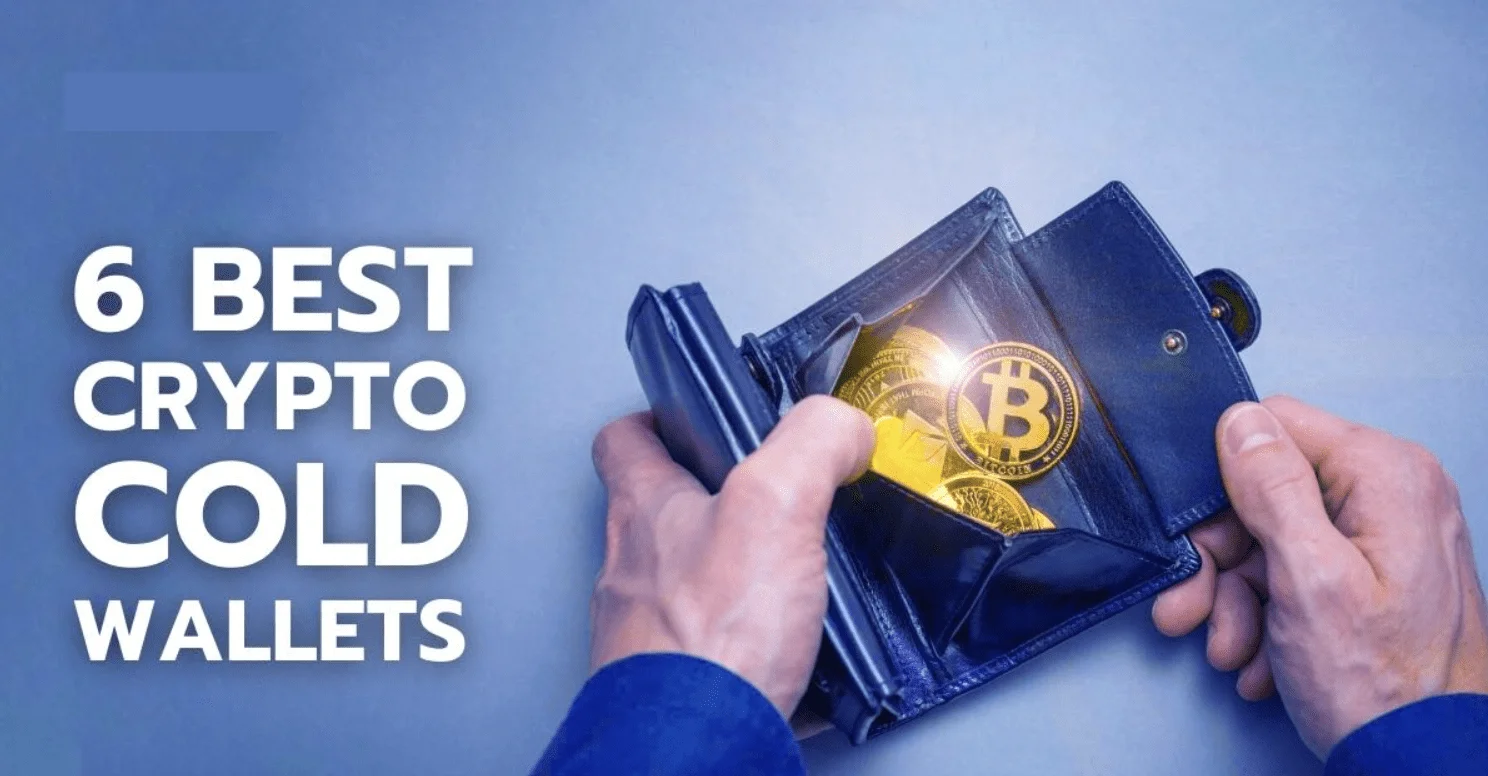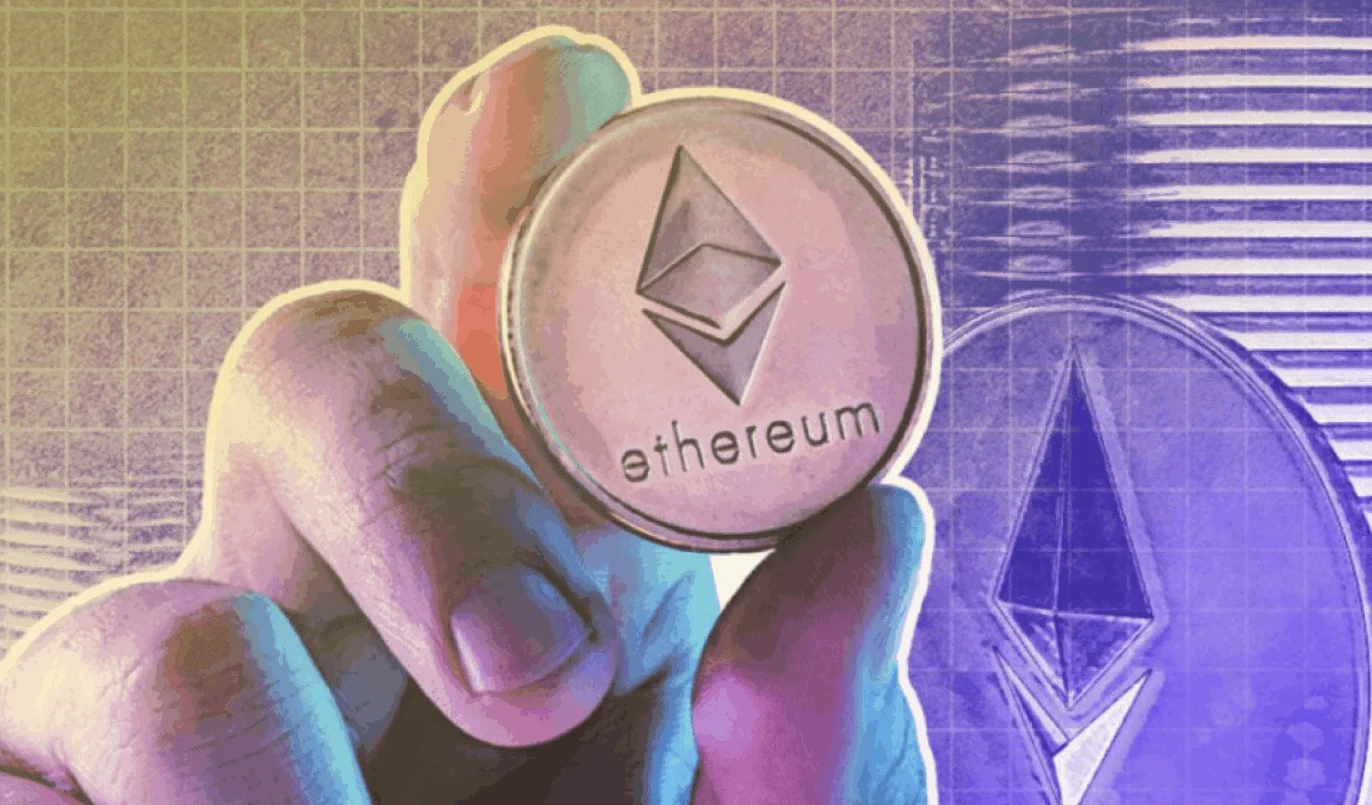In the dynamic world of cryptocurrency, securing your Cardano (ADA) holdings is crucial. The best Cardano wallet in 2024 not only ensures safety but also enhances your experience with features like staking, user-friendly interfaces, and compatibility across devices.
From full-node wallets like Daedalus to streamlined options like Yoroi and Eternl, each wallet offers unique advantages.
Whether you’re a seasoned investor or a newcomer, understanding these wallets’ functionalities and security features is essential for making informed decisions in the Cardano ecosystem.
Introduction to Cardano Wallets
Cardano wallets are essential tools for anyone involved in the Cardano ecosystem. They are not just for storing ADA, the native cryptocurrency of Cardano, but also for interacting with the network’s distributed ledger technology.
A Cardano wallet allows users to send, receive, and manage their ADA holdings, making it a crucial component for participating in the Cardano network.
Why the Right Wallet Matters for Your ADA
Choosing the right Cardano wallet is vital for several reasons. First, it ensures the security of your ADA holdings. Wallets protect your assets from unauthorized access and potential online threats.
Additionally, different wallets offer various features, such as staking ADA, which can be a significant consideration for those looking to earn rewards.
The right wallet also provides ease of use and accessibility, whether through a desktop repository, a mobile app, or a web add-on, enhancing the overall user experience in the Cardano ecosystem.
Decoding Wallet Types: Custodial vs. Non-Custodial
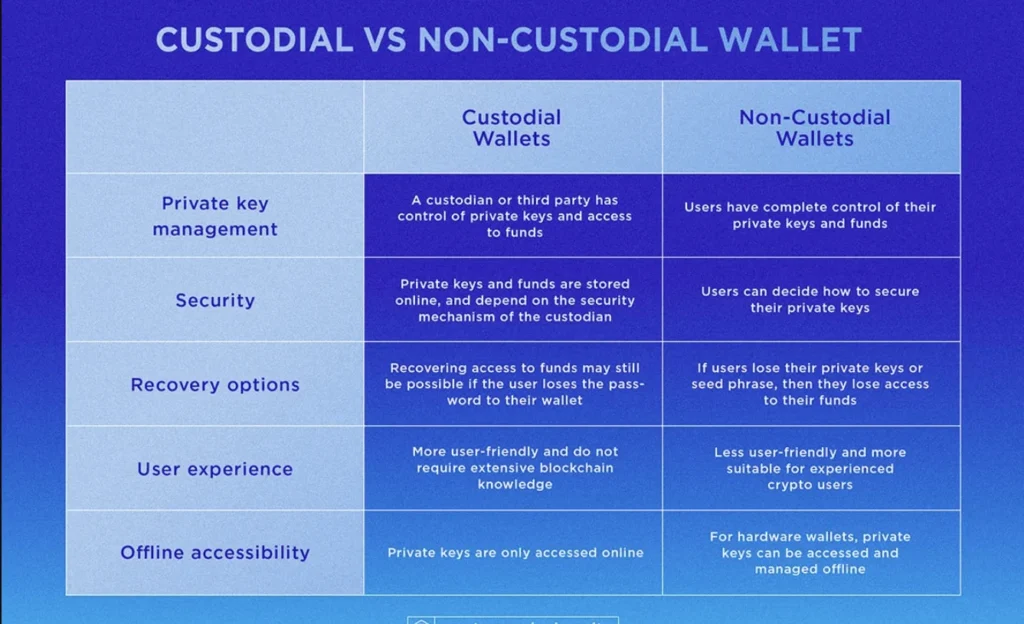
Cardano wallets come in two main types: custodial and non-custodial. Custodial wallets are managed by a third party, which holds the private keys on behalf of the user. This type of wallet is often user-friendly and convenient, especially for beginners.
However, it may pose a risk as the control of the assets lies with the service provider.
Non-custodial wallets, on the other hand, give users full control over their private keys and, consequently, their ADA holdings. This type of wallet offers a higher level of security, as the user is solely responsible for managing their assets.
Non-custodial wallets can be further categorized into hardware wallets, software wallets, and paper wallets, each offering different levels of security and convenience.
In summary, understanding the different types of Cardano wallets and their features is crucial for anyone looking to store, manage, or invest in ADA.
Whether you prefer a custodial wallet for its simplicity or a non-custodial wallet for its security, choosing the right wallet is a key step in your Cardano journey.
Best Cardano Wallet – Top Pick for Overall Excellence
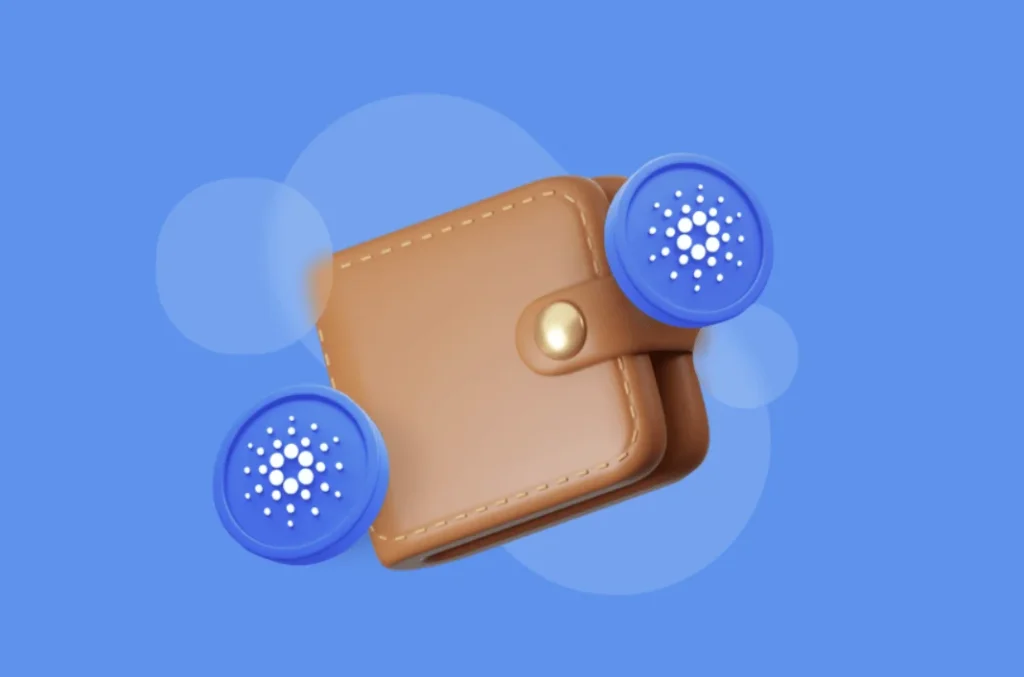
In the realm of Cardano wallets, selecting the best one is crucial for managing your ADA efficiently and securely.
The best Cardano wallet stands out for its combination of security, user-friendliness, and a range of features that cater to both beginners and experienced users in the Cardano ecosystem.
Unveiling the Features of the Best Wallet
The ideal Cardano wallet offers a seamless experience in managing ADA. It should integrate well with Cardano dApps, support native tokens and NFTs, and be open-source for transparency. A user-friendly interface is essential for easy navigation and interaction.
Additionally, the wallet should support hardware wallets for enhanced security. The ability to stake ADA directly from the wallet is another desirable feature, allowing users to earn rewards while contributing to the network’s security.
Weighing the Pros and Cons
While the best Cardano wallet offers numerous advantages, it’s important to consider any limitations.
For instance, some wallets might not be available on mobile platforms, limiting accessibility for users who prefer managing their crypto on the go.
Desktop-only wallets, though secure, may require significant storage space and resources. It’s also crucial to assess the level of dApp integration and whether the wallet supports a variety of seed phrase options for recovery. User popularity can also be a factor, as less popular wallets might have fewer community resources and support.
1. Coinbase – Ideal for Crypto Newbies
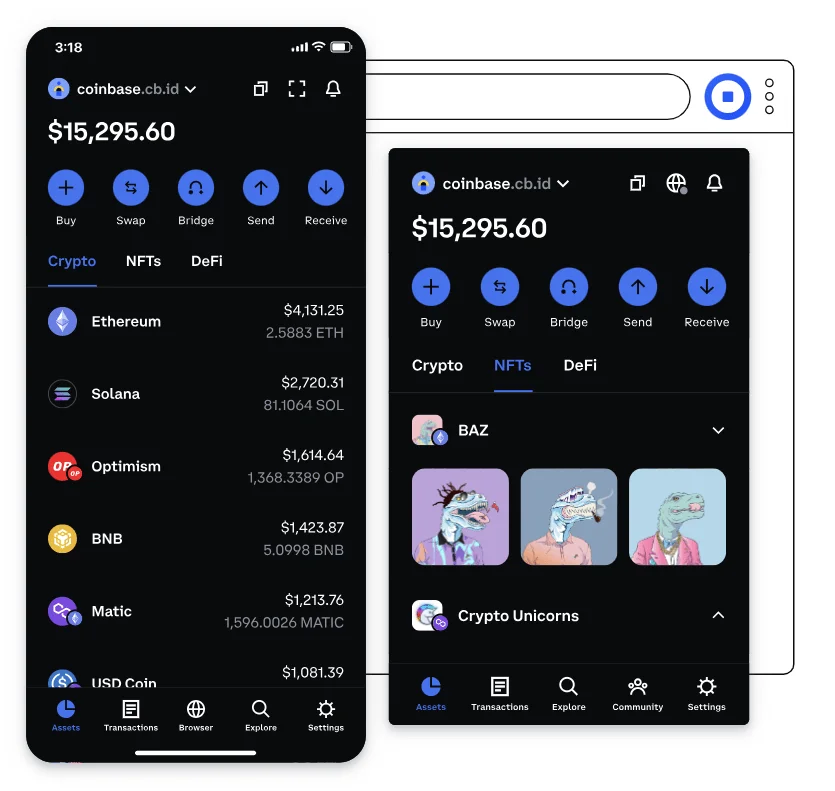
Coinbase Wallet is a standout choice for those new to the world of cryptocurrencies, particularly for managing Cardano (ADA). It’s a user-friendly, mobile, and browser-based wallet that supports a vast array of digital assets, including all ERC-20 tokens.
With its integration into the decentralized finance ecosystem, Coinbase Wallet allows users to engage in staking, yield farming, and NFT trading, all while maintaining control over their digital assets.
Pros of Coinbase Wallet
- Ease of Transfer: Transferring funds from Coinbase exchange to Coinbase Wallet is straightforward, making it ideal for beginners.
- Wide Cryptocurrency Selection: Supports thousands of cryptocurrencies, including all ERC-20 tokens.
- Decentralized Application Access: Offers built-in access to decentralized applications, including tools for staking and NFT marketplaces.
- Conversion to Cold Storage: Partners with Ledger for easy transfer of assets to offline storage, enhancing security.
- Educational Content: Provides educational resources and market analysis tools to help users understand and manage their crypto portfolio.
Cons of Coinbase Wallet
- No Desktop Application: Lacks a desktop application, limiting access to mobile and browser extensions.
- Not Fully Open Source: While it has an open-source protocol, the overall software is not fully open source, which might concern users who prefer fully transparent security measures.
- Security Features: Does not use two-factor authentication or multi-signature support, which are common security features in other wallets.
Coinbase Wallet is an excellent option for those starting their journey in the Cardano ecosystem or looking to diversify their cryptocurrency portfolio. Its user-friendly interface, combined with a wide range of supported digital assets and integration with decentralized finance applications, makes it a versatile and convenient wallet.
However, users should consider the security features and the lack of a desktop application when choosing Coinbase Wallet for their Cardano and other cryptocurrency needs.
2. Daedalus – The Secure Desktop Champion
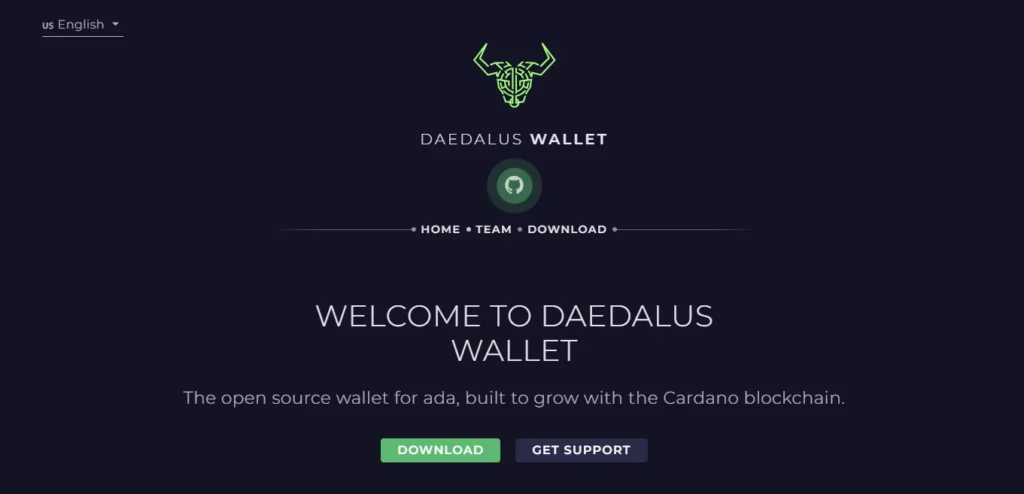
Daedalus Wallet, the official wallet for Cardano, is renowned for its security and comprehensive features. As a full-node hierarchical deterministic wallet, it is designed to manage assets on the Cardano blockchain efficiently.
Daedalus stands out for its ability to independently verify and validate all transactions and blocks, strengthening the Cardano network and distributing control to reduce the risk of a single point of failure.
Pros of Daedalus Wallet
- High Security: With no reported breaches since its launch, Daedalus ensures the safety of your ADA.
- Full-Node Support: Stores a complete copy of the Cardano blockchain for independent transaction validation.
- Cross-Platform Compatibility: Available on macOS, Windows, and Linux.
- Staking Capabilities: Allows users to stake ADA directly within the wallet.
- Customizable Interface: Offers a user-friendly interface with customizable themes.
- Hierarchical Deterministic Wallet: Automatically generates a hierarchical structure of private/public addresses.
Cons of Daedalus Wallet
- ADA-Only Support: Limited to storing only Cardano (ADA) coins.
- No Fiat Onramp: Lacks direct fiat currency exchange features.
- Blockchain Synchronization Time: Requires time to sync with the entire Cardano blockchain.
- No Mobile Version: Available only as a desktop software wallet, limiting accessibility.
Daedalus Wallet is an optimal choice for users deeply invested in the Cardano ecosystem who prioritize security and full-node benefits. Its ability to independently validate transactions provides an added layer of security.
However, its desktop-only availability and ADA-only support might limit its appeal to users seeking a multi-currency wallet or mobile accessibility.
3. AdaLite – Streamlined and Secure Software Wallet
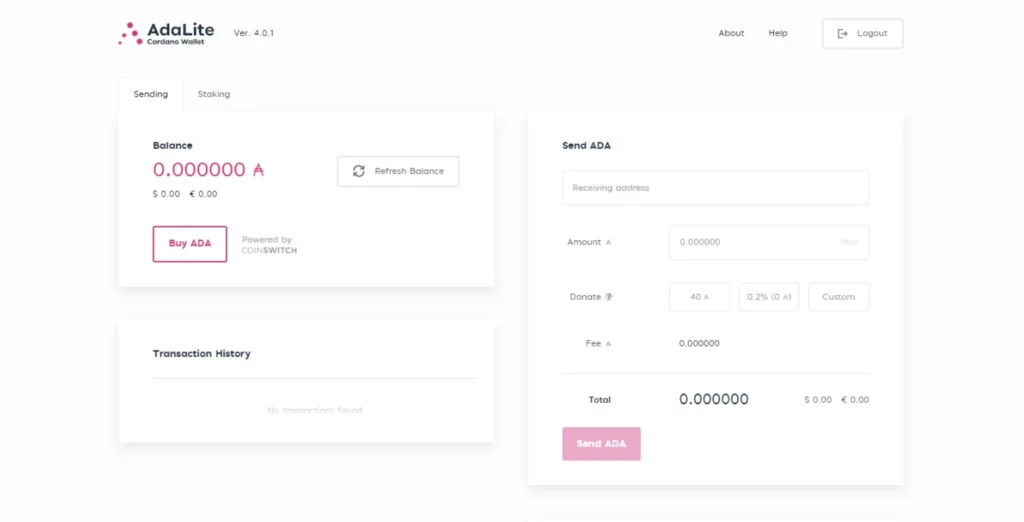
AdaLite, formerly known as CardanoLite, is a lightweight, web-based wallet designed for the Cardano blockchain. It stands out for its simplicity and security, offering a user-friendly platform for ADA management without the need for downloads, installations, or registrations.
AdaLite is particularly appealing for its straightforward approach to accessing and managing ADA, making it a popular choice among Cardano users.
Pros of AdaLite
- User-Friendly Interface: Simple and intuitive, making it easy for beginners to navigate.
- No Download Required: Accessible directly through a web browser, enhancing convenience.
- Supports Hardware Wallets: Compatible with Ledger and Trezor, providing an extra layer of security.
- Self-Hosted Wallet: Private keys remain in the user’s possession, ensuring full control over assets.
- Mnemonic Phrase for Security: Provides a 12-word mnemonic phrase for wallet recovery.
- Staking Capabilities: Allows users to stake ADA directly from the wallet.
Cons of AdaLite
- Web Wallet Risks: More susceptible to phishing attacks compared to hardware wallets.
- ADA-Only Support: Limited to storing and managing only Cardano (ADA) tokens.
- No Mobile App: Lacks a dedicated mobile application, limiting on-the-go accessibility.
- Less Popular: Not as widely used as some other Cardano wallets, which may affect community support and resources.
AdaLite offers a balance between ease of use and security, making it an excellent choice for those who prefer a straightforward and efficient way to manage their ADA. Its compatibility with hardware wallets like Ledger and Trezor adds an extra layer of security.
However, users should remain cautious of the inherent risks associated with web-based wallets.
4. Ledger Nano X – The Fort Knox of Cardano Wallets
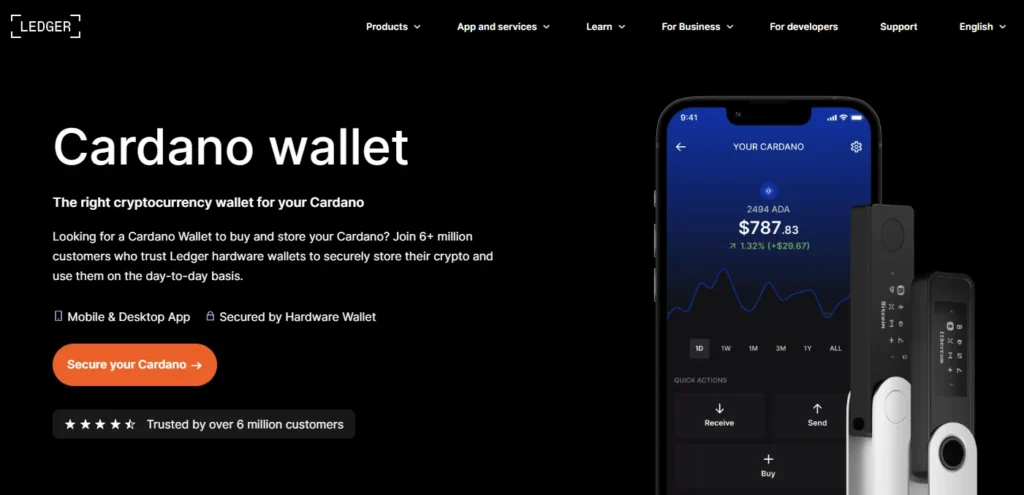
The Ledger Nano X is a highly regarded hardware wallet in the cryptocurrency community, known for its robust security features and support for a wide range of digital assets, including Cardano (ADA).
It offers a secure way to store, manage, and stake your ADA, making it an ideal choice for those looking for a reliable hardware wallet solution.
Pros of Ledger Nano X
- Supports Over 5,500 Assets: Including Cardano (ADA), Bitcoin, Ethereum, and many others.
- Native Staking and NFT Management: Allows users to stake coins and manage NFTs directly from the wallet.
- Mobile App with Bluetooth Connection: Offers convenience and mobility, especially with the Nano X model.
- Robust Crypto Education Library: Provides a wealth of information for users to learn about cryptocurrency.
- Two-Factor Authentication and Multisignature Security: Enhances the security of the wallet.
- Cold Storage: Keeps your crypto assets offline and safe from online threats.
Cons of Ledger Nano X
- Software Isn’t Fully Open Source: While the Ledger Live software is open source, the device firmware is not, requiring trust in the security of the device code.
- No Touch Screen: Some users may prefer a wallet with a touch screen for easier management, which the Ledger Nano X lacks.
- Past Data Breach Incident: In July 2020, Ledger experienced a marketing database breach, although it has since changed its data storage practices in response.
The Ledger Nano X is a top choice for those looking to securely store a variety of cryptocurrencies, including Cardano. Its combination of security features, ease of use, and support for a wide range of assets makes it a popular choice among crypto enthusiasts.
However, users should be aware of its software limitations and the lack of a touch screen.
5. Trezor – A Formidable Hardware Wallet Contender
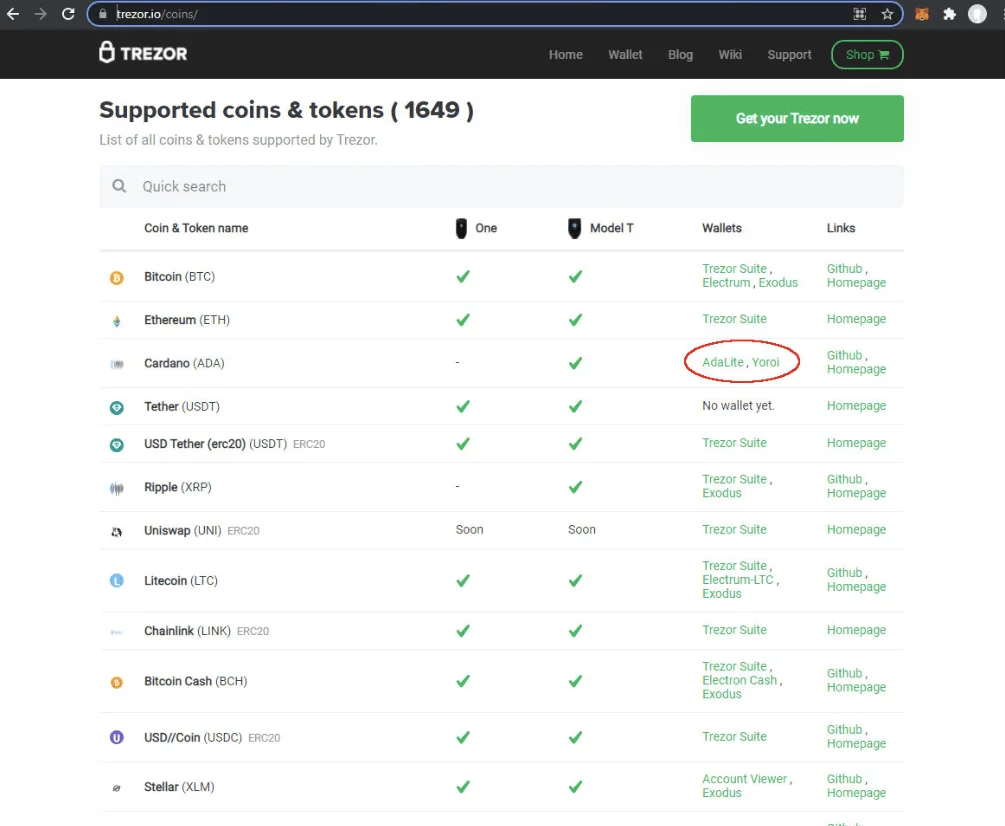
Trezor, a pioneer in the hardware wallet industry, offers two models: Trezor One and Trezor Model T. These wallets are known for their top-notch security, supporting over 1,800 cryptocurrencies, including Cardano (ADA).
Trezor wallets are designed to provide the highest level of security for crypto assets, making them a popular choice for those seeking a secure storage solution.
Pros of Trezor Wallet
- High Security Standards: Offers offline private keys, Trusted Display technology, and comprehensive security features.
- Support for a Wide Range of Cryptocurrencies: Manages over 1,800 types of crypto, including mainstream and obscure ones.
- Ultra-Portable Design: Lightweight and compact, fitting easily into the palm of your hand.
- User-Friendly Interface: Simple setup process and easy to use, even for beginners.
- Advanced Cryptography: Supports high cryptography standards like BIP-39 passphrase and SLIP-39 Shamir for seed recovery.
- Self-Protection Mechanisms: Firmware signature verification and write-only bootloaders to prevent tampering.
Cons of Trezor Wallet
- Build Quality Concerns: Some users may find the build quality less than ideal, especially for the price.
- No Smartphone App: Lacks a dedicated smartphone app, requiring reliance on WebUSB or Trezor Bridge for mobile connectivity.
- Complex FIAT Withdrawal Process: Cashing out to FIAT currencies can be clunky, requiring transfer to an exchange capable of handling bank withdrawals.
Trezor wallets offer an excellent balance of security, functionality, and ease of use. They are ideal for those who prioritize the safety of their crypto assets and are willing to invest in a hardware wallet.
However, users should consider the build quality and the lack of a dedicated smartphone app when choosing Trezor for their Cardano and other cryptocurrency needs.
6. Yoroi – The Featherweight ADA Wallet
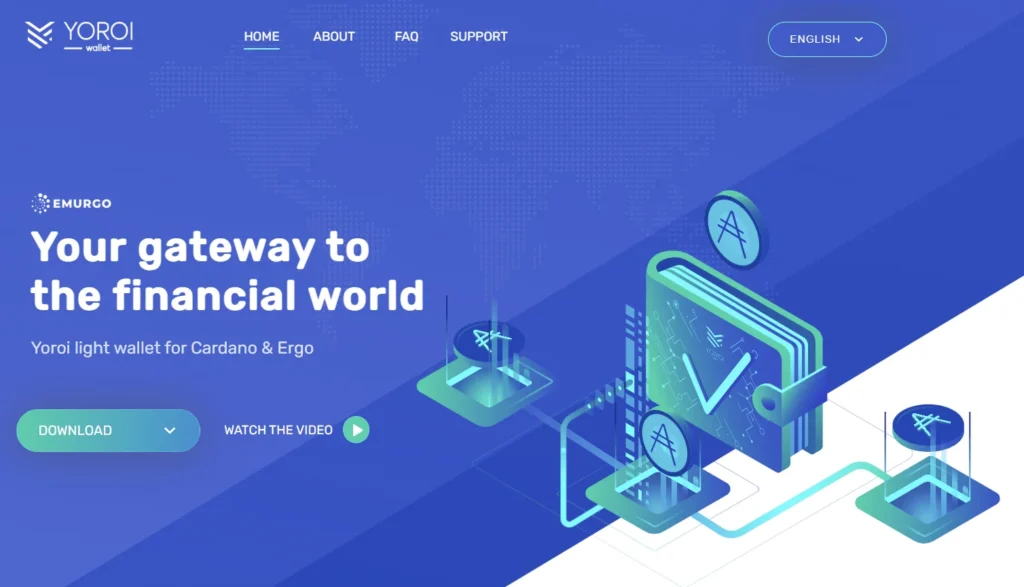
Yoroi is a non-custodial, light wallet designed specifically for the Cardano (ADA) ecosystem. It operates as a web browser extension, providing a convenient and efficient way to manage ADA without the need for downloading the entire blockchain.
Developed by Emurgo, Yoroi is known for its simplicity, security, and ease of use, making it an excellent choice for both new and experienced Cardano users.
Pros of Yoroi Wallet
- Secure and Reliable: Developed by Emurgo, ensuring trust and professionalism in its development.
- Free and Easy to Use: User-friendly interface that is simple to navigate, ideal for beginners.
- Staking Capabilities: Allows users to stake ADA for passive income.
- Supports Cardano Assets and NFTs: Can store various assets and NFTs on the Cardano blockchain.
- Mobile Compatibility: Available on iOS and Android devices, in addition to desktop browsers.
- Open-Source Software: The wallet’s code is open for review, enhancing transparency and security.
- Privacy-Preserving: Generates new external addresses for each transaction to maintain privacy.
- Direct ADA Purchase: Enables users to buy Cardano directly within the wallet.
Cons of Yoroi Wallet
- Limited Ecosystem Support: Primarily supports only the Cardano and Ergo ecosystems.
- Performance Issues for Some Users: Some users report slow loading, although many have positive experiences.
Yoroi Wallet stands out as a lightweight, secure, and user-friendly option for managing Cardano assets. Its ability to stake ADA, combined with its support for mobile devices and direct ADA purchases, makes it a versatile choice for Cardano enthusiasts.
However, its focus on the Cardano ecosystem may limit its appeal to users looking for a multi-currency wallet.
7. Crypto.com – A Versatile Hub for ADA and More
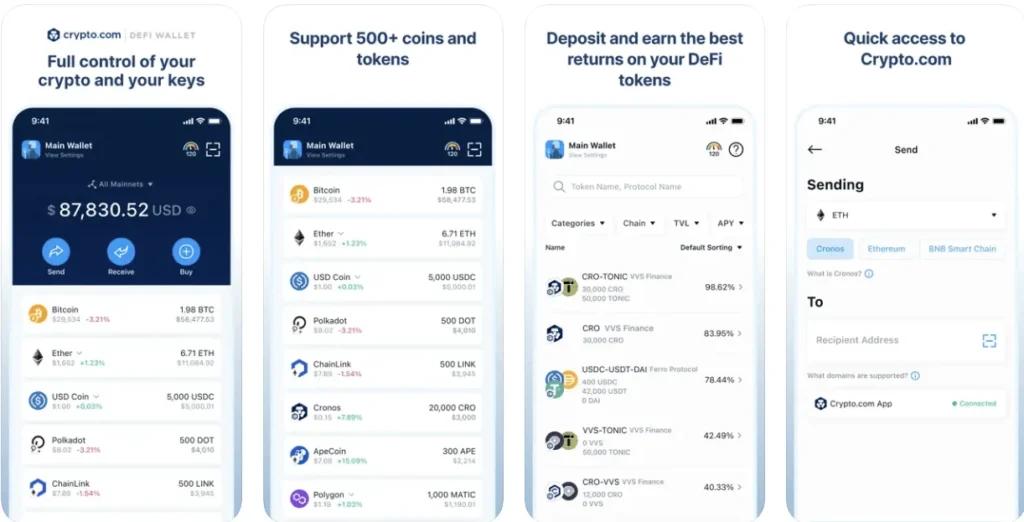
Crypto.com is a comprehensive platform that offers a wide range of services for cryptocurrency users, including a vast selection of digital assets. It is particularly appealing for mobile-first users and those interested in transactions with fiat currency and decentralized finance (DeFi) tokens.
With its extensive cryptocurrency offerings and user-friendly mobile app, Crypto.com is a popular choice for those looking to manage Cardano (ADA) and other digital assets.
Pros of Crypto.com
- Wide Selection of Cryptocurrencies: Offers more than 250 cryptocurrencies, including Cardano (ADA).
- Low or No Fees with Cash: No trading and transaction fees for purchases made with bank transfers via ACH.
- Mobile App Availability: Main app available on iOS and Android with high user ratings.
- Staking and Rewards: Offers staking on more than 20 cryptocurrencies with rewards up to 12.5%.
- DeFi and NFT Support: Access to decentralized finance applications and NFT marketplaces.
- Security Measures: Implements cold storage and insurance for assets, enhancing security.
Cons of Crypto.com
- High Withdrawal Fees: Charges fees for withdrawing crypto from the platform.
- Limited Services in the U.S.: Some services, such as margin trading, are not available to U.S. residents, and the platform is not accessible in New York.
- Lack of Desktop Trading: Primarily a mobile-first platform, which may not suit users who prefer desktop trading.
- Past Security Breach: Experienced a security breach in 2022, although it has taken steps to enhance security since then.
Crypto.com is an excellent choice for users looking for a versatile platform that supports a wide range of cryptocurrencies, including Cardano. Its mobile-first approach and low fees for cash transactions make it a user-friendly option.
However, users should be aware of the high withdrawal fees and limited availability of certain services in the U.S.
Choosing Your Ideal Cardano Wallet
Selecting the right Cardano wallet is a crucial decision for anyone involved in the Cardano ecosystem. With a variety of wallets available, each catering to different needs and preferences, it’s important to understand the features and functionalities that align best with your requirements.
Understanding Different Wallet Types
- Full Node Wallets: Like Daedalus, these wallets download the entire Cardano blockchain and offer direct interaction with the network. They are resource-intensive but provide a high level of control and security.
- Light Wallets: Wallets such as Yoroi operate as browser extensions or mobile apps, connecting to the blockchain via remote servers. They are fast, user-friendly, and don’t require downloading the entire blockchain.
Considering Hardware Wallet Integration
- Enhanced Security: Wallets that support hardware wallet integration, like Ledger Nano or Trezor, add an extra layer of security by physically securing private keys.
- Convenience and Accessibility: Hardware wallets provide a balance between security and ease of use, allowing for secure transactions with the convenience of a software wallet.
When choosing a Cardano wallet, consider factors such as the type of wallet (full node or light), hardware wallet integration, ease of use, and the specific features you need, such as staking capabilities or support for NFTs.
Whether you prioritize security, convenience, or a combination of both, there is a Cardano wallet that suits your needs.
Key Takeaways: Securing Your Cardano Journey
When navigating the world of Cardano wallets, it’s essential to keep in mind several key points to ensure the security and efficiency of your ADA transactions and storage.
- Choose the Right Wallet Type: Whether it’s a full node wallet like Daedalus, a light wallet like Yoroi, or a hardware wallet like Ledger or Trezor, select the one that aligns with your needs for security, convenience, and functionality.
- Security is Paramount: Prioritize wallets that offer robust security features, such as two-factor authentication, control over private keys, and backup options. Hardware wallets provide an added layer of security by storing private keys offline.
- Supported Currencies and Features: Ensure the wallet supports Cardano (ADA) and any other cryptocurrencies you might want to store. Look for additional features like staking capabilities, integration with decentralized applications (DApps), and user-friendly interfaces.
- Ongoing Development and Support: Opt for wallets backed by active development teams and reliable customer support. Regular updates and a strong community presence are indicators of a wallet’s long-term viability.
- Be Wary of Scams: Only use wallets from trusted and reputable providers. Be cautious of new or unknown wallets that may pose security risks.
Remember, the choice of a wallet can significantly impact your experience in the Cardano ecosystem. By considering these key points, you can make an informed decision that balances security, convenience, and functionality.
Frequently Asked Questions:
What’s the best wallet for Cardano?
The best wallet for Cardano depends on your needs. Daedalus is ideal for full-node access, Yoroi for a light, user-friendly experience, and Ledger or Trezor for hardware security.
Which wallet to use for ADA?
For ADA, consider Daedalus for desktop, Yoroi for a light browser extension or mobile app, and Ledger or Trezor for hardware wallets.
Where should I store my Cardano?
Store Cardano in a secure wallet like Daedalus, Yoroi, or a hardware wallet like Ledger or Trezor, depending on your preference for security and convenience.
Are Cardano wallets safe?
Cardano wallets like Daedalus, Yoroi, and hardware wallets are generally safe, offering various security features. Always follow best practices for security.
What is the safest wallet to store ADA?
Hardware wallets like Ledger and Trezor are considered the safest for storing ADA, as they provide offline storage and robust security features.
How safe is Yoroi?
Yoroi is a safe wallet for Cardano, offering encryption and privacy features. It’s a light wallet developed by Emurgo, making it reliable and user-friendly.
Does ADA have a wallet?
Yes, ADA can be stored in several wallets, including Daedalus (official full-node wallet), Yoroi (light wallet), and hardware wallets like Ledger and Trezor.
Is Yoroi a good wallet?
Yoroi is a good wallet for Cardano users seeking a balance between ease of use and security. It’s a light wallet, making it accessible and convenient
Article Sources
At UncryptoNote, we prioritize accuracy and integrity in our content. Our writers are required to utilize primary sources to substantiate their work. This includes white papers, government data, firsthand reporting, and interviews with experts in the industry. We also incorporate original research from other credible publishers when relevant. This rigorous approach ensures that we deliver content that is both precise and impartial.
- Coinbureau: Best Cardano Wallets: Top 6 Places to Safely Store ADA
- Bitcatcha: Trezor Wallet
- LearnCardano: How to Choose A Cardano Wallet
- Finder: Best wallets for Cardano (ADA)
- Coinledger: The 9 Best Cardano Wallets in 2024
- Thecryptobasic: Best 5 Cardano Wallets To Save Your Goods
- Nerdwallet: Coinbase Wallet Review 2024: Pros, Cons and How It Compares
- Coindoo: Daedalus Wallet Review | Features, Security, Pros and Cons
